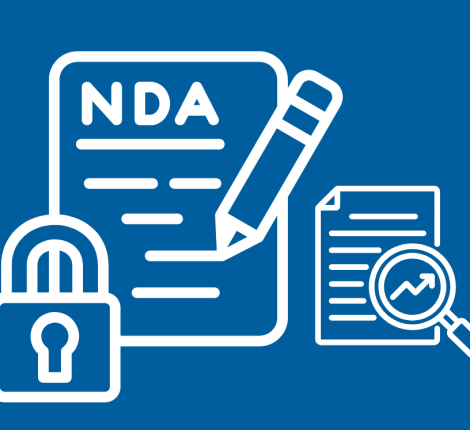Employment Law Newsletter – Karnataka High Court Clarifies on Notice and Compliance Requirement under Section 9A : March 2025
In a recent decision, the Karnataka High Court (“Court”), in the case of Bharat Earth Movers Ltd. v. General Secretary and Ors.1 , has reinforced the criticality of procedural compliance under Section 9A of the Industrial Disputes Act, 1947 (“ID Act”).
Section 9A of the Industrial Disputes Act, 1947 mandates that an employer must provide a 21-day prior written notice before making any unilateral changes to the service conditions of employees listed in the Fourth Schedule of the ID Act. These conditions include aspects such as wages, working hours, leave policies, job roles, and other employment terms. The notice must clearly outline the proposed change and be communicated to the affected employees or their registered union. The procedural requirements vary per the state-specific requirements prescribed under the respective State Rules.
Background of the Case
The dispute in this case arose when the employer, Bharat Earth Movers Ltd., unilaterally introduced changes to its leave calculation policies and certain employment terms without providing prior notice under Section 9A of the ID Act. The company altered the vacation leave formula, which directly impacted the employees’ service conditions.
The labour union, representing the affected employees, challenged the change, arguing that it was implemented without following the statutory notice requirements under Section 9A. The union contended that the employer’s failure to issue prior written notice rendered the policy change invalid. The union further claimed that the lack of notice deprived employees of their legal right to be informed and to negotiate or contest the modifications.
The company, however, argued that it had posted a notice regarding the policy change at the main entrance and notice board of the company premises. The company also claimed that it had served a registered post notice to the union secretary, which it believed satisfied the Section 9A requirements. The employer contended that since the policy change applied to all employees collectively, individual notices were not necessary.
Key Legal Findings and Judicial Reasoning
- Mandatory Notice Requirement under Section 9A: The Court unequivocally held that any unilateral change to service conditions listed in the Fourth Schedule of the ID Act—including wages, working hours, leave policies, or other employment benefits—necessitates a prior written notice of 21 Employers cannot bypass this requirement, regardless of the magnitude or nature of the change.
- Validity of Collective Notice Service: The Court clarified that when the proposed change affects all workmen and the establishment has a registered union, individual notices to each employee are not Instead, the following methods of service are deemed valid:* Posting the notice at the main entrance or on the company’s notice board.
* Serving the notice to the secretary of the registered union by registered post.Ensuring the notice is displayed in a manner accessible to all employees. - Employer’s Authority Under Standing Orders: The Court held that if the employer is designated as the “employer” under the certified Standing Orders, they are competent to issue notices regarding changes in service conditions, provided they are authorized to do so. This clarifies that authority to alter conditions must be expressly provided for in the Standing Orders.
- Judicial Clarification on Individual Notice: The Court emphasized that this ruling should not be construed as a blanket exemption from serving individual In cases where only a specific group of employees is affected by the change, individual notices may still be necessary. However, when the entire workforce is impacted, a collective notice suffices.
Implications for Employers
The ruling carries substantial implications for employers across industries, particularly those managing large workforces or operating with unionized employees.
- Statutory Compliance and Legal Validity: The judgment highlights the non-negotiable nature of Section 9A compliance. Any unilateral modification of service conditions without the prescribed 21-day notice can be deemed invalid and unenforceable. Companies introducing new HR policies, modifying employee benefits, or altering work conditions must now rigorously ensure procedural compliance, especially in cases of any downward revisions.
- Simplified Notice Protocols for Unionized Workforces: The Court’s clarification on collective service simplifies notice issuance for unionized workforce. Employers with a registered union can serve notice by posting it on the company notice board and sending it to the union secretary, eliminating the need for individual notices. This provides administrative efficiency and legal certainty.
- Increased Litigation Risks for Non-Compliance: Employers failing to comply with Section 9A risk legal challenges, potential invalidation of policy changes, and exposure to financial liabilities. Labour unions or employees may dispute the changes before tribunals, resulting in operational disruptions and reputational
Conclusion
The Karnataka High Court’s ruling in Earth Movers Ltd. v. General Secretary serves as a critical precedent, emphasizing the inviolability of Section 9A compliance. For employers, this decision reinforces the need to follow strict procedural safeguards when modifying employee service conditions.
The ruling also provides much-needed clarity on the validity of collective notice service for unionized workforces, simplifying compliance for large organizations. However, it also highlights the risks of non-compliance, as procedural lapses may render policy changes invalid and expose companies to litigation.
About Us:
LegaLogic (www.legalogic.com) is a full-service law firm with more than 50 people team. Founded in 2013, LegaLogic has been advising across industry segments. It is a go-to firm for the Corporate Commercial Matters, M&A, Intellectual Property, Employment Law, Real Estate, Dispute Resolution, Litigation, Insurance Advisory, India Entry Strategy and Private Client Practice. To know more about our Corporate Commercial and Insurance Advisory Practice, please write to us at employmentlaw@legalogic.com.
Disclaimer:
This newsletter is for informational purpose only and should not be treated as legal advice or opinion. No part of this newsletter should be considered an advertisement or solicitation of professional services of LegaLogic.





